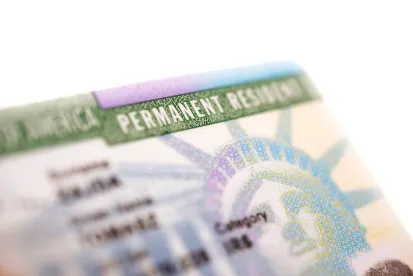In a 5–4 decision on February 21, 2020, the Supreme Court of the United States ruled in Wolf v. Cook County, Illinois (No. 19A905) in favor of staying an Illinois district court’s injunction blocking the Trump administration’s public charge rule. This injunction had been limited to Illinois residents only—a distinction that initially kept it in place when the Supreme Court overturned a nationwide injunction issued by a New York federal court in January. The federal government, however, appealed to the Supreme Court, citing irreparable harm if it did not also lift the Illinois injunction.
What Is the Impact of the Supreme Court’s Ruling?
The public charge rule, which went into effect on February 24, 2020, is enforceable in all 50 states. The rule prescribes how the U.S. Department of Homeland Security “will determine whether an alien who is applying for admission or adjustment of status is inadmissible to the United States because he or she is likely at any time to become a public charge.” A “public charge” is defined as an alien who receives one or more public benefits for more than 12 months in the aggregate within any 36-month period. Under the rule, receipt of two benefits in the same month will count as two months.
The rule is not likely to have a significant impact on the outcomes of most employment-based cases, but it will require applicants to provide U.S. Citizenship and Immigration Services (USCIS) with substantially more information (and documentation) about their health, finances, and educational backgrounds, as well as their use of public benefits.
The Department of State Follows Suit
It is also worth noting that the U.S. Department of State (DOS) will begin implementing its version of the public charge rule—which the White House’s Office of Management and Budget approved on February 20, 2020—beginning February 24, 2020. The DOS will require immigrant visa applicants to complete the new Form DS-5540 Public Charge Questionnaire. The questionnaire requests information about the foreign national’s health, finances, educational background, and use of public benefits. While the form is only mandatory for immigrant visa applicants, consular officers may—in their discretion—require nonimmigrant visa applicants to complete the form if the officer believes “additional information is necessary.”
What Is the Impact of the Department of State’s Rule?
Foreign nationals applying for immigrant visas (and some nonimmigrant visas) at a U.S. consulate will be required to complete the Form DS-5540. It is not yet clear whether this requirement will apply only to new applications filed on or after February 24, 2020, or if the questionnaire will be requested from foreign nationals with applications already in process (perhaps at the visa interview). The form itself requests only a limited amount of documentation, such as Internal Revenue Service tax transcripts, but the DOS has updated its Foreign Affairs Manual to clarify that consular officers have the discretion to request additional documentation based on the information provided in the questionnaire.





 />i
/>i
